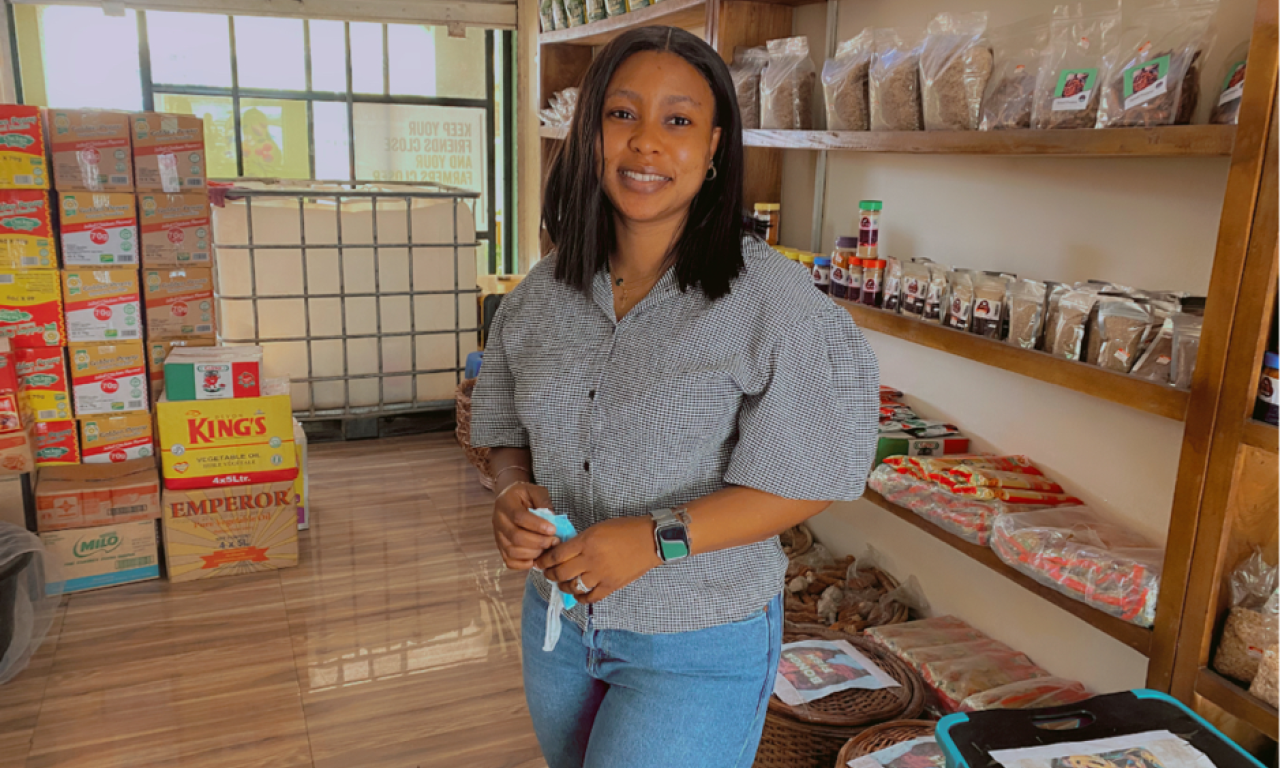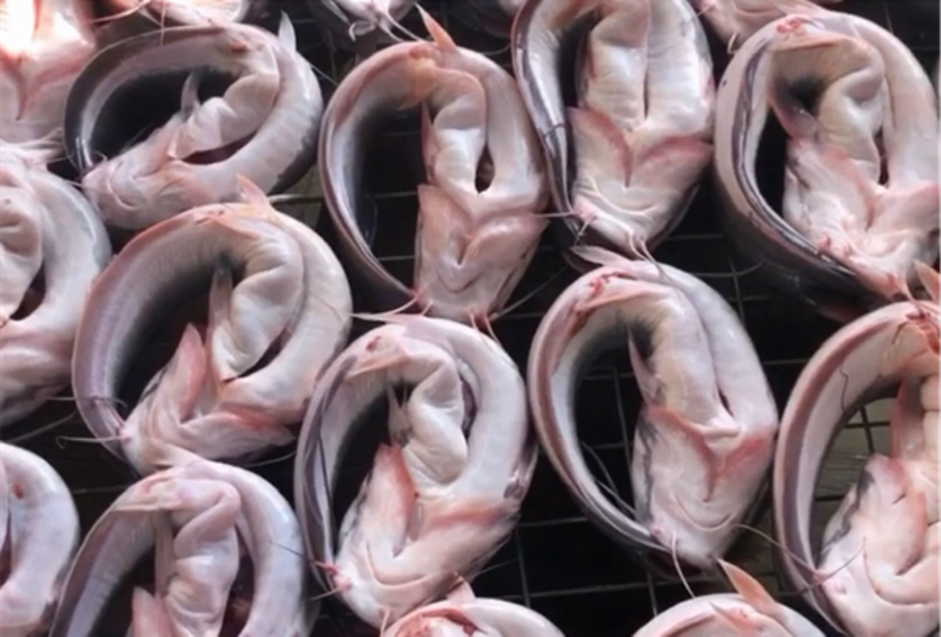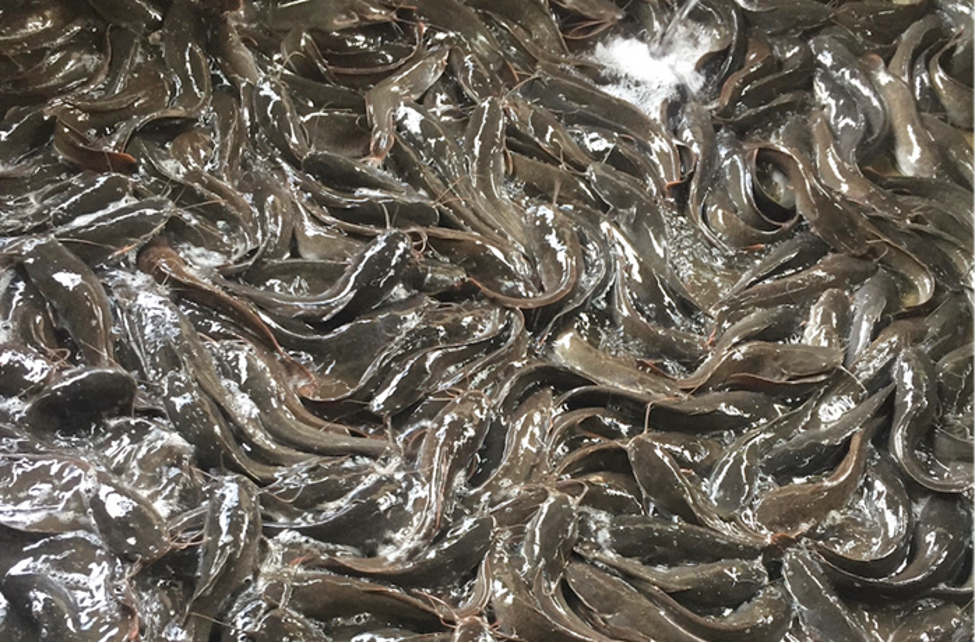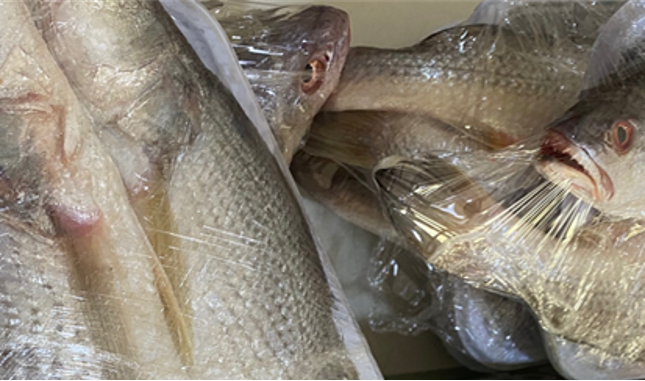
- Olatunde Olufunmike Kechicha is a 28-year-old catfish entrepreneur who was awarded the 2020 Aquaculture Awards in the Rising Star category
- Her enterprise, Imoran Farms Nigeria Limited turned to innovation and digital platforms during the COVID-19 pandemic to continue serving her retailers and customers
- She hopes the need to import frozen aquatic foods into the country can be reduced or completely removed through increased youth participation in aquatic food systems, especially the involvement of young women in cage culture production
Youth are the future of aquatic food systems.
A 2021 report by the High Level Panel of Experts on Food Security and Nutrition of the Committee on World Food Security acknowledges the importance of youth participation in the transformation of food systems and the need to invest time and effort to engage them. However, many challenges remain and youth need to overcome multiple barriers to become involved in aquatic food systems.
Through this series, WorldFish features prominent youth in aquatic food systems across the supply chain, be they input suppliers, producers, processors, traders or academics, and share their successes, failures, opportunities and aspirations to inspire other youth to enter the sector.
Olatunde Olufunmike Kechicha is the co-founder and chief executive officer of Imoran Farms Nigeria Limited, which produces juvenile catfish fingerlings to distribute to fish farmers throughout Nigeria. The 28-year-old entrepreneur has received nominations for a multitude of national and international awards for her agricultural work in the country. Most recently, she was awarded the 2020 Aquaculture Awards in the Rising Star category.
"I would say the most noticeable thing from winning the award was the network of people I have met and connected with both physically and virtually. It has also helped give credibility to my brand, and this shows with us opening our own retail farm store,” elaborated Kechicha, who holds a bachelor’s degree in zoology from the University of Ibadan.
Innovating in the face of adversity

Established in 2017, Imoran Farms started off producing catfish that is sold live to retailers and consumers. However, when COVID-19 reached Nigeria, containment measures such as nationwide lockdowns caused logistical problems for retailers and customers to purchase fish from her farm. The longer a catfish that has reached marketable size is not harvested and sold, the more feed it consumes. This further reduced her farm’s profit margin, which had already been negatively impacted by the increase in fish feed prices in 2019.
To counter the challenges that her fish farming business was facing, she decided to harvest the catfish once they reached a marketable size and prolong the shelf life by smoking them in a kiln. This ensured that her catfish would not spoil before reaching her retailers and customers.
She also explored the use of e-marketing through social media platforms such as Facebook, Instagram, and Twitter to meet the needs of customers who were not able to travel to the wet market. For those who were unable to reach the market in person, a retail farm store was opened where her smoked fish was sold. With these successes under her belt, she has since explored other value-added products.
“Another value-added product I have ventured into is freezing. This enables us to freeze fish like tilapia and catfish from the farm individually in the freshest possible condition and sell them in our retail store,” shared Kechicha.
Advocating environmentally sustainable aquaculture

Having a master’s degree in sustainable aquaculture from the University of Stirling, Scotland, Kechicha felt strongly about undertaking fish farming in a nature-positive way. She explained that the sustainability of aquatic food systems is interwoven between feed and nutrition, breeding technology, disease management and low-impact production to improve efficiency.
Cage culture has many advantages over other forms of aquaculture and is being increasingly explored in Nigeria. Cage culture has the flexibility of being established in a variety of water bodies, as long as the water quality is suitable for the cultured species. It is also relatively low capital and easier to harvest. However, water quality may be affected and this needs to be addressed to ensure the sustainability of the aquaculture practice in the area.
“Environmental sustainability of every form of aquaculture is important, particularly cage culture that makes use of an existing natural resource, where waste is discharged directly into this environment,” she elaborated.
She added that sustainability could be ensured by setting up monitoring bodies that would be physically present on-site to monitor feeding practices and the introduction of other farm inputs rather than relying on reports from farmers that may not represent the reality on the ground.
“Bodies regulating aquaculture should pay more attention to the broader sector instead of individual farms. Since cage farms are usually found in clusters, spatial planning and zoning can ensure that cage operations stay within the capacity of the water body,” said Kechicha, who is currently pursuing her doctorate at the University of Ibadan’s Faculty of Renewable Natural Resources.
Other measures that would promote an environmentally friendly sector include providing technical support, investing in technological innovation, and transferring practices to farmers. On her part, she has provided consultation for farm startups and conducted training seminars on fish farming and fish value addition.
The future of aquatic food systems in Nigeria

Kechicha hopes that domestic production of aquatic foods in Nigeria will increase in the next decade, reducing or completely removing the need to import frozen aquatic foods into the country, which makes them unaffordable to many low-income Nigerians.
For that to happen, she recognizes the need to increase youth participation in aquatic food systems, especially the involvement of young women in cage culture production, not just processing and trade, which are traditionally dominated by women. The government also needs to provide proper funding opportunities for qualified youth interested in aquatic food farming, she explained.
“The biggest motivation for youth is funding. If the government makes loans, grants, training, seminars and incentives more easily accessible to youth, they would be more interested in aquaculture,” she remarked.
She suggested leveraging social media to increase awareness and share information that would easily reach the technologically-savvy youth.
